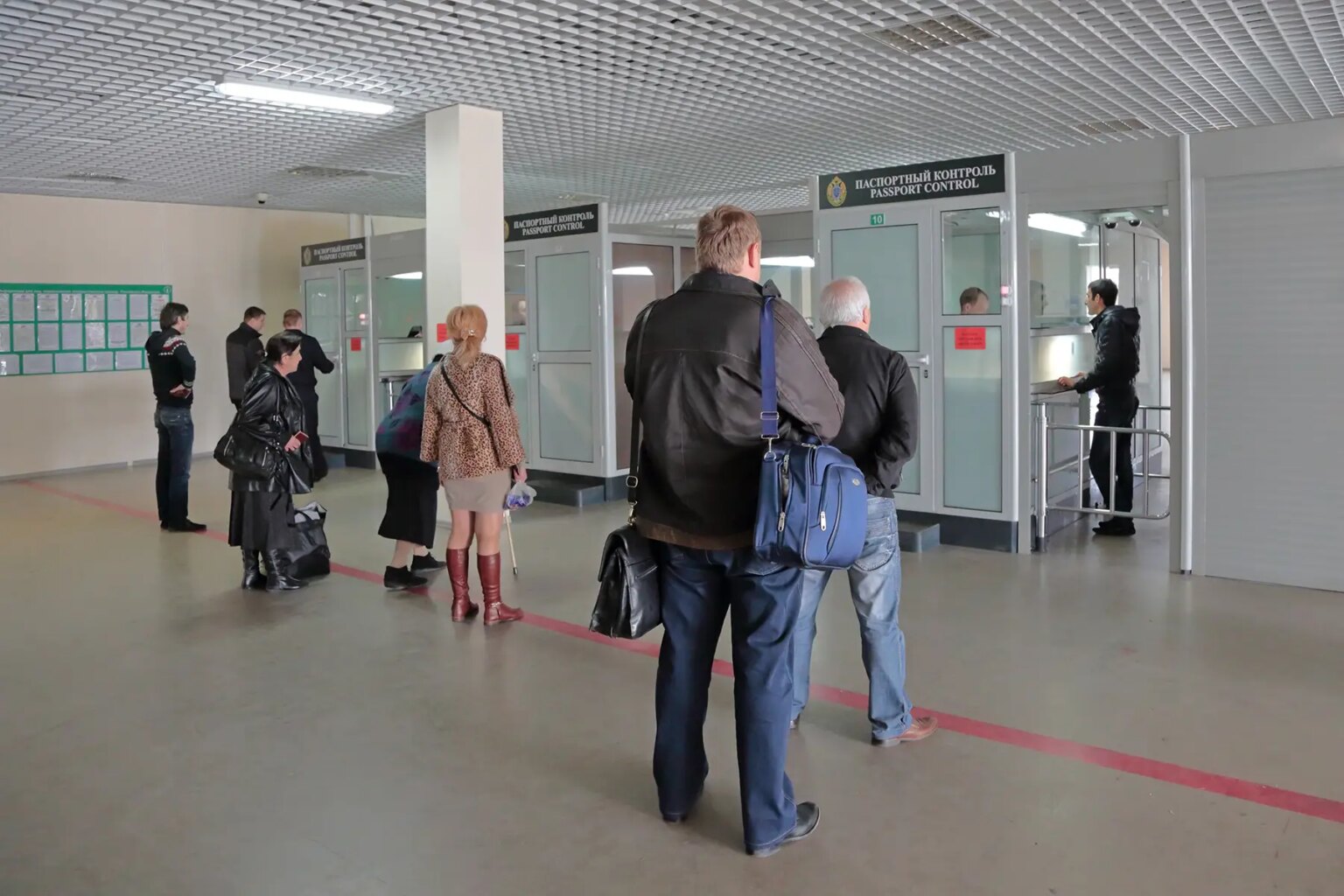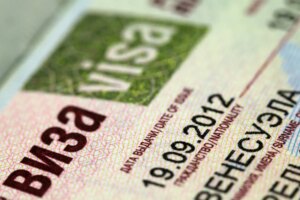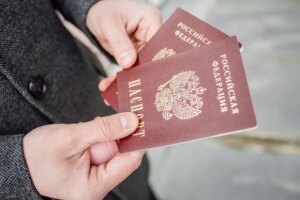Important notice from the Editor in Chief
Maintaining our Russian site is a delicate matter during the war. We have chosen to keep its content online to help our readers, but we cannot ensure that it is accurate and up to date. Our team endeavors to strike the right balance between giving information to those who need it, and respecting the gravity of the situation.
Certain relatives of foreign nationals living in Russia can travel to join family under Russian family reunion laws. The application process depends on the immigration status of the family member living in Russia and which visa is being used to enter Russia.
If you want to join family in Russia through family reunion, check your country’s visa situation for traveling to Russia. Citizens of most countries need a visa to enter Russia, but those from certain countries – Commonwealth of Independent States (CIS) countries plus a few others – can enter for varying periods visa-free.
The information in this article relates to countries that require a visa to enter Russia (which includes most EU/EFTA countries). If you’re from a country with a visa-free agreement with Russia, however, you need to check with the Russian embassy, Russian visa application center, or consulate in your home country to find out what the exact situation regarding Russian family reunion is.
This guide to moving to Russia to join a relative or partner includes topics such as:
- Which relatives can join residents in Russia
- Joining relatives in Russia with a temporary residence permit
- Joining relatives in Russia with permanent residence or citizenship
- How to apply to join a relative or partner in Russia
- Relatives working or studying in Russia
- Russian family visa costs
- Useful resources
ReloAdvisor
Thinking about relocating to Russia? Make sure you start your Russian adventure on the right foot by checking out your options on ReloAdvisor. Compare quotes from some of the world's biggest relocation specialists and find the right option for you and your family. Start your new life right with ReloAdvisor.
Which relatives can join residents in Russia
Russian family reunion is generally restricted to spouses and dependent relatives (children and in some cases parents/grandparents). Those who are in Russia temporarily to work, study, carry out business or on a humanitarian visa can be joined or accompanied by spouses or dependent relatives using an Accompanying Family Member visa. This will have to be done via invitation from the individual/organisation that provided the invite to the family member in Russia (e.g., employer, university) and agreed by the Russian General Directorate of Migratory Affairs (GUVM). It is easier to do this if the relative travels to Russia and enters the country at the same time rather than joins at a later date.
Spouses, children under 18, and incapacitated children who are family members of Russian citizens are entitled to a Family Member visa if the relative who is a Russian citizen signs a visa request form. Spouses, children and parents of Russian citizens can also apply for residence or citizenship in Russia if they meet certain conditions.
Those who are entering Russia on a highly-skilled migrant visa can be joined or accompanied by spouses, children, and parents without an invitation needed.
Those who have been granted refugee status in Russia can also be joined by family members under Russian family reunification laws.
Relatives of any kind can apply for a Russian Private Visa to join family members in Russia and stay for up to 90 days. The GUVM decides on this.
Joining relatives in Russia with a temporary residence permit
It is possible to accompany or join relatives in Russia on a temporary residence permit. This is by invitation only, however, and is at the discretion of the GUVM.
Foreign residents who are living in Russia temporarily on the following visas can apply to be joined or accompanied by spouses or dependent relatives:
- Business Visa
- Humanitarian Visa
- Work Visa
- Study Visa
Apply at the Russian embassy or consulate in the home country before traveling to Russia.
If you get a Russian family reunion visa by the GUVM to visit someone with temporary residence, it cannot exceed the length of time that the family member you are visiting is staying in the country. You cannot work or study in Russia, however.
Foreign nationals with temporary residence status in Russia can also invite family members of any kind to visit them on a Russian Private Visa. These are valid for 90 days although for US citizens visiting diplomats based in Russia they can be valid for three years.
See our article on Russian visas and residence permits for even more information on the different types of visas available.
Joining relatives in Russia with permanent residence or citizenship
Foreign nationals can apply for permanent residence in Russia after one year; they subsequently become eligible for Russian citizenship after five years of permanent residence.
Foreign residents with permanent residency in Russia don’t get any specific rights relating to family reunion, unless they have a Highly Skilled Migrant visa. Spouses and dependent relatives can also apply to join family in Russia on an Accompanying Family Member visa. Relatives can apply for a Russian Private Visa, but these are short-term visas (up to 90 days); it is up to GUVM to grant a temporary residence permit or the right to work. Family members can also apply for permanent residence after one year.
Those wishing to join family members in Russia and stay long-term should visit their local GUVM office for advice. A list of local GUVM branches is available here.
Those in Russia on a Highly Skilled Migrant visa receive a 3-year permanent residence permit upon arrival in Russia and can also have their spouses, children, and parents join them.
If you have Russian citizenship, your spouse and children can join you through the Russian Family Members visa. This is valid for three months. Those wanting to stay long-term can apply for temporary residence and then have a stronger case for Russian citizenship.
Those with family members or spouses who are Russian citizens get priority for residence permits. The following are eligible for full citizenship without waiting for the full naturalization process of five years:
- those with at least one parent who is a Russian citizen
- those who have been married to a Russian citizen for at least three years
- those with disabilities who have a capable child who is a Russian citizen
- children or disabled individuals with a legal guardian who is a Russian citizen
How to apply to join a relative or partner in Russia
To apply under Russian family reunion in order to accompany or join a family member in Russia, you will need to contact the Russian embassy or consulate in your home country.
The exact documents required will depend on where you are traveling from but will include:
- completed application form
- passport
- one passport-sized photo
- proof of relationship to the family member you are joining
- letter of invitation from GUVM
- receipts for payment of fee
- medical certificate to prove that you are clear of HIV (AIDS)
If you are entering Russia on a Private Visa, you must provide the letter of invitation from the family member. If entering on a Family Member of Russian Citizen visa, the relative who is a Russian citizen will need to sign the visa request form.
All foreign visitors to Russia must register their stay at the local GUVM branch within seven days of arrival. This is often done by the organization or individual inviting the visitor, however; it’s worth checking to ensure this is done. Failure to register with the GUVM can result in a fine and in some cases expulsion from Russia.
Relatives working or studying in Russia
Unless you are joining family in Russia who have entered on a Highly Skilled Migrant visa or are eligible to apply for Russian citizenship through being related to a Russian citizen as detailed above, you will have to apply to the GUVM for a permit to study or work. Russian work and study permits are not easy to obtain, are usually conditional on job or study placement offers and are often restricted by quotas. If you arrive on a Russian Private Visa or are joining a family member who has a temporary residence permit, you cannot get a Russian work or study permit.
See our articles on Russian work visas and permits and Russian study permits for even more information.
Russian family visa costs
Russian family reunion visa costs vary from country to country and depending on what visa type you opt for. In the UK, costs are from £165.




